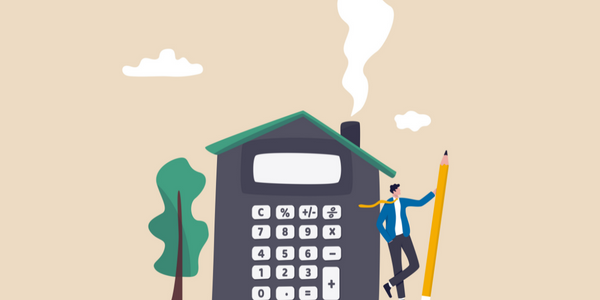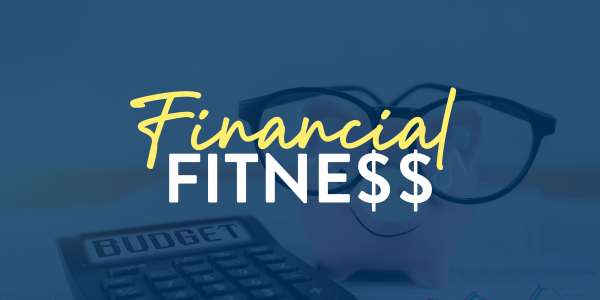
Springtime often comes with unpredictable weather, which also describes our current financial and economic outlook. Proposed import tariffs for China, Canada and other countries may result in increased prices across the board. These and other concerns resulted in the Federal Reserve's recent decision to keep current interest rates unchanged.

Home Financing
The Retiree's Guide to Home Buying
If you're thinking of retiring soon, or have already traded your commute for relaxation, you may eventually consider buying another home. Perhaps you're not sure you want to sell your existing home right now or haven't decided where your next home should be.
While mortgage guidelines are generally the same for retirees as for working applicants, there are a few additional things to keep in mind.
Will retirement mean a fixed income for you? If so, you'll want to consider any new expenses that may be included with a new home. For example, if you're trading in a family home for a low-maintenance condo, ask about Homeowners Association (HOA) fees. If you're headed to the countryside, research costs for internet service, septic systems and other rural amenities.
Will your retirement income make payments affordable? Even if you're selling a home and putting down a large down payment, lenders still need to verify your income. If your retirement income will be limited to Social Security and/or a pension, this could be a challenge.
What about homeowner's insurance? Retirees headed to Florida or other coastal areas will need to research insurance costs before proceeding. Homes at risk for hurricanes or wildfires may cost up to four times as much to insure as those in other, lower-risk areas.
Ready to apply for a mortgage? Make sure your finances are in order before you proceed, especially if your best earning years are behind you. In addition to getting copies of your credit reports, pay down any revolving debts.
Source: kiplinger.com
Insurance
Protect Your BFF With Cell Phone Insurance
While just about everyone carries a cell phone, a few are fonder of theirs than others. Around 12% of the population have admitted to using their phone while in the shower, and over 40% of millennials admitted that they would rather skip shampooing their hair for a week than give up their phones for that long.
No matter how you feel about your phone, it's generally better to carry insurance for it, even if it's paid for. Depending on your policy's coverage, you'll be covered if you drop and damage it, lose it, spill a drink on it, or if it's stolen.
Generally, this means that if your phone needs to be repaired or replaced, you'll only be responsible for a deductible. Some insurers don't charge for screen repairs, so if you're prone to these, it could be worth shopping around for this.
Last but not least: if you attempt to repair your phone and end up damaging it, this is usually not covered by insurance.
Source: smartfinancial.com
Product Alert
Mortgage Loans for Doctors: A Prescription for Homeownership
As a medical professional, you've dedicated countless hours to building your career and caring for others. Whether you're a newly graduated doctor, dentist, or veterinarian, or an experienced professional, owning a home can feel like a distant goal. Student debt, limited credit history, and the high costs of buying a property add hurdles to achieving this milestone. Fortunately, the Doctor Loan program is here to change that.
This home financing program is specifically for medical professionals. It is designed to help you overcome common barriers to homeownership, providing financial solutions that align with your career path. Let's explore the details of the Doctor Loan, its benefits, and why it could be the perfect option for you.
Read more here.
Credit and Consumer Finance
Two New Factors That May Affect Your Finances
Several financial factors, including a major inflation spike, resulted in many of us prioritizing debt reduction for this year. It's a sensible goal as household debt has hit an all-time high and federal policy changes are fueling uncertainty for everyone from federal employees to farmers.
While some news from Capitol Hill is positive, such as a new House bill that aims to cap credit card interest rates at 10%, there are two major changes in the works. Unfortunately, they could present new challenges to your 2025 budget.
1. Tariffs
This year has seen a dizzying number of tariffs imposed on goods from Mexico, Canada and China, with some countries announcing retaliatory tariffs on U.S. goods. While these tariffs are being constantly changed, postponed and reinstated, most economists see higher prices in the future for just about everything. While it's impossible to predict when and how future prices will be affected, purchases of big-ticket items before they're affected by tariffs may be something you want to consider.
2. The Consumer Financial Protection Bureau (CFPB)
Like other financial news, the future of the CFPB is constantly changing. Earlier this year, threats of a shutdown were rife. More recently, a Senate bill was introduced that would prohibit the agency from requesting funding.
Consumer advocates have pointed out that the CFPB has returned over $21 billion to consumers in compensation, principal reductions, canceled debt and other relief.
Several CFPB rules that were introduced in 2024 may be on the chopping block, including a limit on bank overdraft fees and the banning of medical debt on credit reports.
Source: nerdwallet.com
Did You Know?
Beware of the Toll Troll Text Scam
Like thousands of other cell phone users, you may receive a strangely worded text that demanded you pay a highway or bridge usage toll. If you do, delete it immediately, as it's a scam.
These texts are from scammers who impersonate road toll collection agencies and attempt to get phone users to reveal financial information, such as credit or debit cards, or bank account details. They often contain worthless threats like legal action, additional fees or even cancellation of your driver's license. Since overseas scammers send most of these, you may notice that the text originated from a number with an international area code.
Toll fee fraud bumps up the number of methods scammers use to attempt to part you from your money. Other text-based fraudsters may accuse you of an unpaid bill, provide information for claiming an undelivered package (that doesn't exist), or even send a phony anti-scam warning. Clicking on one of these may expose your phone to a malware download, even if you aren't duped into sending any financial information.
Learn more about these and other scams by visiting the Federal Trade Commission's Consumer Advice website.
Source: apnews.com








